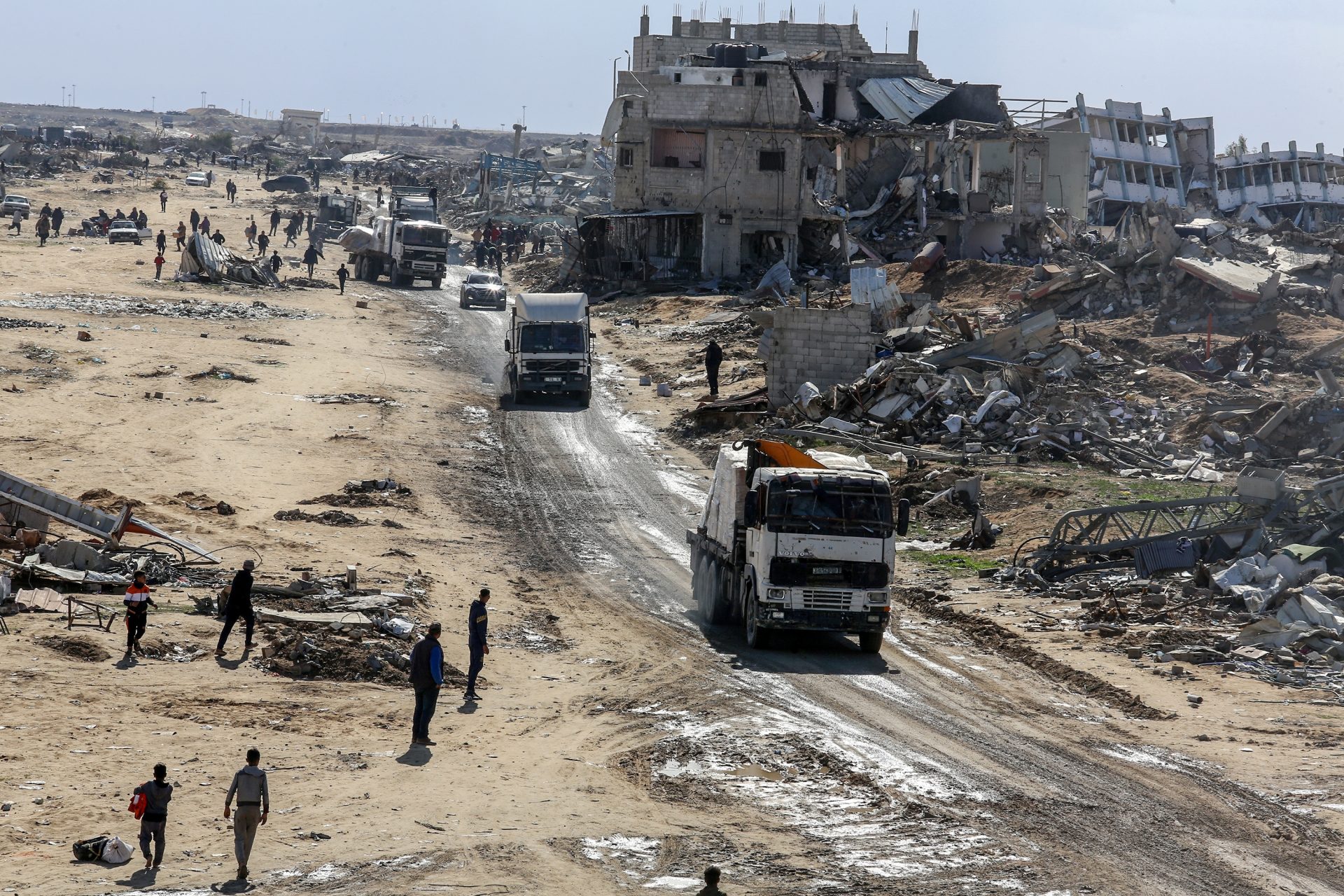
Desperate for AID – Why Was Mohammed SHOT?
Palestinians desperately seeking food aid in Gaza were caught in deadly gunfire near a new distribution center, highlighting the extreme dangers civilians face in conflict zones.
At a Glance
- Palestinians in Gaza faced near-starvation conditions after almost three months without aid deliveries
- A new Israeli-backed aid distribution site opened in Rafah, promising improved systems over UN efforts
- Thousands of desperate civilians traveled miles to reach the aid center
- Gunfire erupted at the site, resulting in civilian casualties including 30-year-old Mohammed Abdulal
- The incident underscores the fragility of humanitarian operations in active conflict zones
Desperate Journey for Survival
After nearly three months without aid entering the region, thousands of Palestinians in Gaza made dangerous journeys to reach a newly established food distribution center in Rafah. The site, operated by the Gaza Humanitarian Foundation with backing from Israel and the United States, was designed to improve aid distribution while preventing supplies from reaching Hamas. Mohammed Abdulal, a 30-year-old Palestinian, traveled approximately 18 miles to the location, joining crowds of others seeking essential supplies for their families.
The distribution center was heavily secured, with Israeli forces surrounding the area and U.S. private security contractors overseeing operations. This heightened security presence reflected the complex situation on the ground, where authorities attempted to balance humanitarian needs with security concerns. The Gaza Humanitarian Foundation’s effort represented an alternative to United Nations distribution systems, which had struggled to effectively reach civilians in the war-torn region.
Chaos and Casualties
What began as a humanitarian mission quickly deteriorated into chaos when gunfire erupted at the distribution site. Panic spread through the crowds as people fled in all directions seeking safety. Among those caught in the violence was Mohammed Abdulal, who sustained a serious facial injury from gunfire. The incident demonstrated the extreme volatility that surrounds even humanitarian operations in Gaza.
“I only took two steps before I felt a bullet tear into my right cheek and neck”, said Mohammed Abdulal.
The wounded Palestinian described the terrifying moments after being shot, calling out desperately for assistance amid the confusion. “I started shouting: ‘People, I’m wounded. Help me,'” Abdulal recounted from his hospital bed. The violence at the aid distribution center occurred despite efforts to create a controlled environment for humanitarian assistance, highlighting the challenges of delivering aid in an active conflict zone.
Conflicting Narratives
The incident at the Rafah aid distribution center has produced sharply divided accounts of what transpired. Palestinian witnesses and health officials reported that Israeli forces fired on civilians who were simply attempting to access food aid. Israeli military authorities countered that they responded appropriately to individuals who disregarded direct orders, characterizing their actions as necessary security measures to protect against potential threats.
This latest clash illustrates the fundamentally different perspectives that shape reporting on events in Gaza. The gap between these narratives reflects the broader difficulty in establishing agreed-upon facts in a region where truth itself has become contested territory. For humanitarian workers and civilians alike, these divergent interpretations create additional layers of complexity in an already dangerous situation.
Humanitarian Aid Under Fire
The new aid distribution initiative in Rafah faced significant challenges from its inception. Despite intentions to improve upon previous humanitarian efforts, the system encountered immediate security complications. The Gaza Humanitarian Foundation’s work was meant to represent a more efficient channel for aid delivery while maintaining safeguards against diversion of supplies, but the deadly violence undermined these objectives from the start.
For Palestinians like Mohammed Abdulal, the risks taken to secure food for their families resulted in severe consequences. The ongoing conflict has created conditions where even accessing basic humanitarian assistance can become a life-threatening endeavor. This reality reflects the precarious position of civilians caught between military operations and their fundamental needs for survival in a region where humanitarian spaces are increasingly under threat.


